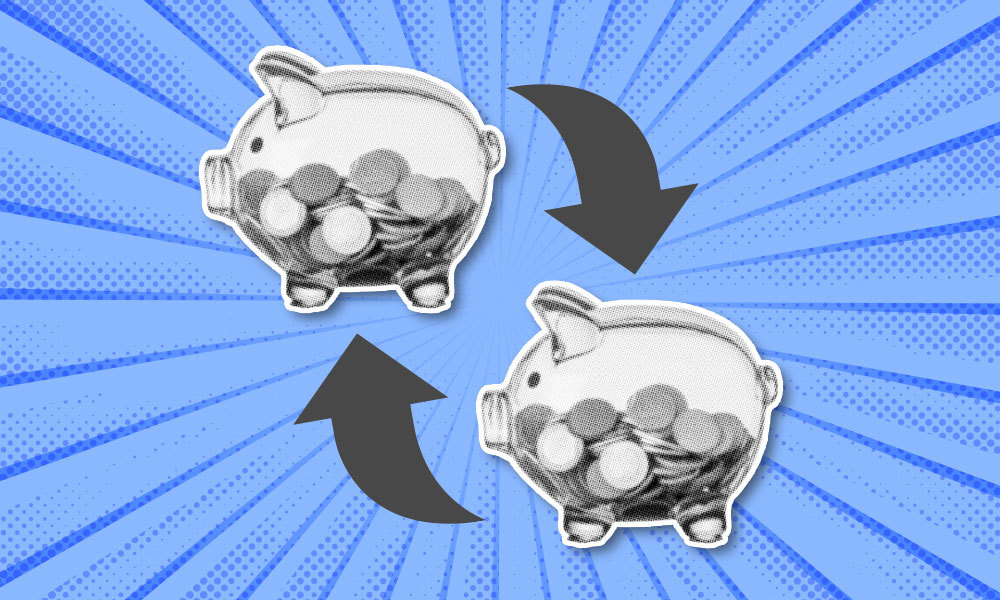 Contact
About Us
Articles
Home
Contact
About Us
Articles
Home

An ETF, or exchange-traded fund, is a basket of securities that trades on an exchange like a stock. ETFs are popular because they offer the benefits of diversification at a lower cost than traditional mutual funds.
ETFs may be a good choice for investors who want the potential for higher returns with the convenience of a stock. However, like all investments, there are risks involved. Before investing in an ETF, you should do your research and understand the risks.

There are four main types of ETFs: equity ETFs, fixed-income ETFs, commodity ETFs and currency ETFs.
Equity ETFs are the most common type of ETF and they track a wide variety of stocks. Fixed-income ETFs track bonds and other debt instruments, while commodity ETFs track commodities such as gold and oil. Currency ETFs track foreign currencies.
ETFs can track a specific index, such as the S&P 500 or the Dow Jones Industrial Average. Index funds are usually passively managed, meaning that they don't try to outperform the market, but simply track the performance of the index.
Passive ETFs track an underlying asset but doesn't try to outperform the market. Passive ETFs are typically index funds. Active ETFs are the opposite of passive ETFs. Active ETFs are managed by a fund manager who tries to beat the market by picking stocks, bonds or other assets that they believe will outperform the market. Active ETFs are more expensive than passive ETFs, but they can also provide higher returns.
Commodity ETFs, which track commodities such as gold, oil or agriculture, can be either passively or actively managed. Currency ETFs that track foreign currencies can be either passively or actively managed.
Each type of ETF has its own benefits and risks. Equity ETFs provide exposure to a wide variety of underlying assets, but they can be volatile. Fixed-income ETFs provide stability and income, but they can be less volatile than equity ETFs. Commodity ETFs can provide exposure to commodities, but they can be volatile. Currency ETFs provide exposure to foreign currencies, but they, too, can be volatile.
When it comes to investing, there are a lot of different options out there. You can invest in stocks, bonds, mutual funds and more. But one option that you may not have considered is investing in ETFs, which are becoming more and more popular. And there are some good reasons for that.
One of the biggest advantages of ETFs is that they are very diversified. When you invest in an ETF, you are essentially buying a basket of different investments. This diversity can help to mitigate risk.
ETFs also offer several tax advantages compared to other investment vehicles. Here are some key tax benefits:
However, while ETFs are generally seen as tax-efficient, they are not tax-exempt. Investors in ETFs still have responsibilities when it comes to reporting dividend income and capital gains or losses. Additionally, the specific tax benefits can vary based on the type of ETF and the investor's personal tax situation. As with any investment, it's wise to consult with a financial professional to understand the full tax implications of ETF investments.

Of course, there are some disadvantages to investing in ETFs as well. One of the biggest disadvantages is that they are not suitable for everyone. ETFs can be a good choice for investors who are looking for a simple, diversified investment. But if you are an active investor who likes to pick and choose your own investments, ETFs may not be the right choice for you.
Another disadvantage of ETFs is that they can be difficult to understand. Because ETFs trade on the stock market, they can be subject to the same volatility as stocks. This can make them a little tricky to understand and predict.
Also, ETFs may not perform as well as other types of investments in a strong market. Because they are designed to track an index, they will not outperform the market. But in a weaker market, ETFs may provide a good way to help protect your portfolio.
Overall, ETFs have a lot to offer investors, but they are not right for everyone. Before you invest in an ETF, make sure you understand how they work and whether they are right for your investment goals.
When it comes to saving for retirement, one of the most important things to consider are the fees and expenses associated with your investment choices. With so many options available, it can be difficult to know where to start.
The good news is that ETF fees and expenses are generally lower than those of other investment options, such as mutual funds. Vanguard reports that its typical ETF expense ratios are often less than .05%. Investopedia reports typical mutual fund expense ratios are .5% to 1% and rarely exceed 2.5%.
Still, it's important to understand exactly what you're paying for when you invest in an ETF. The three main types of fees and expenses associated with ETFs are management fees, transaction costs and other expenses.
Management fees are charged by the fund manager in order to cover the costs of running the fund. These fees are typically a percentage of the assets under management (AUM), and they can vary depending on the size and type of fund.
Transaction costs are incurred when you buy or sell shares of an ETF. These costs can include broker commissions, bid-ask spreads and market impact costs.
Other expenses are any other costs associated with running the fund, such as legal and accounting fees. These expenses are typically a very small percentage of the AUM.
When choosing an ETF for your retirement savings, it's important to consider all of the fees and expenses associated with the fund. While ETFs offer many advantages, they also come with some costs that you need to be aware of. By understanding the fees and expenses, you can make sure that you're getting the most out of your investment.
Most people think of ETFs as a way to invest in a specific stock or group of stocks, but there are a number of tax considerations that need to be taken into account when investing in ETFs.
When it comes to taxes, ETFs are treated like mutual funds. This means that any capital gains or losses from the sale of an ETF are taxed at the individual's marginal tax rate.

However, there are a few key differences between ETFs and mutual funds when it comes to taxes. First, ETFs are usually more tax-efficient than mutual funds. This is because ETFs tend to have lower turnover rates, meaning that they are less likely to generate short-term capital gains that are taxed at a higher rate.
ETFs also offer investors the ability to choose when to realize their gains or losses. With a mutual fund, investors are generally stuck with the tax implications of the fund's overall performance. With an ETF, however, investors can choose to sell their shares at any time, which gives them more control over when they will be taxed on their gains or losses.
It's important to remember that ETFs are subject to the same rules as other investments when it comes to retirement accounts. This means that any gains or losses from the sale of an ETF in a retirement account are not taxed until the money is withdrawn from the account.
For most investors, the tax considerations of ETFs are not likely to be a deciding factor in whether or not to invest in them. However, it's still important to be aware of the potential tax implications of ETFs before making any investment decisions.
Here are 10 risks of investing in ETFs:
In summary, exchange-traded funds (ETFs) present a unique opportunity for investors to diversify their portfolios while enjoying lower fees and tax efficiency. ETFs offer a blend of the characteristic features of both stocks and mutual funds, packaged into a single investment vehicle that's designed to echo the performance of an index or a basket of assets.
Alliance America is an insurance and financial services company dedicated to the art of personal financial planning. Our financial professionals can assist you in maximizing your retirement resources and achieving your future goals. We have access to an array of products and services, all focused on helping you enjoy the retirement lifestyle you want and deserve. You can request a no-cost, no-obligation consultation by calling (833) 219-6884 today.


